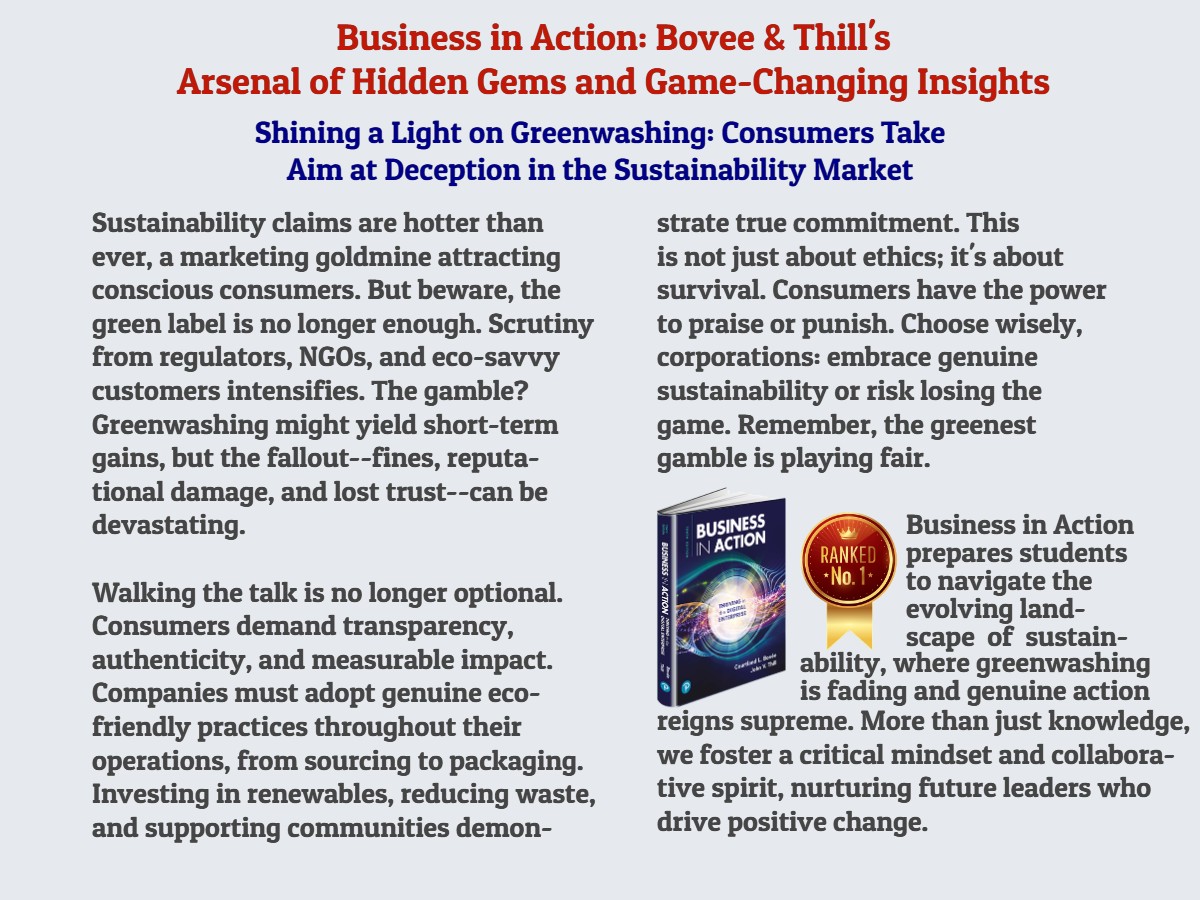
Discussion Question 1: How can companies effectively communicate their sustainability efforts to consumers without being accused of greenwashing?
Answer: Companies must prioritize transparency and authenticity when communicating their sustainability efforts to consumers. They should provide detailed information about their eco-friendly practices, including specific goals, progress, and challenges faced. This can be achieved through comprehensive sustainability reports, third-party certifications, and clear labeling on products.
To avoid accusations of greenwashing, companies should focus on measurable impact rather than vague claims. They can share data on carbon emissions reduced, renewable energy used, waste minimized, and resources conserved. Collaborating with respected environmental organizations and participating in industry-wide sustainability initiatives can further validate their commitment.
Moreover, companies should engage in open dialogue with consumers, addressing their concerns and seeking feedback. They can utilize social media, customer service channels, and educational campaigns to foster trust and credibility. By being proactive, consistent, and genuine in their sustainability communication, companies can build long-lasting relationships with eco-conscious consumers.
Discussion Question 2: What are the long-term benefits for companies that invest in genuine sustainability practices, and how can they outweigh the short-term costs?
Answer: Investing in genuine sustainability practices offers companies significant long-term benefits that can outweigh the short-term costs. Firstly, adopting eco-friendly practices can lead to operational efficiency and cost savings. By reducing energy consumption, minimizing waste, and optimizing resource use, companies can lower their expenses and improve their bottom line over time.
Secondly, genuine sustainability enhances brand reputation and customer loyalty. As consumers become increasingly aware of environmental issues, they are more likely to support companies that demonstrate authentic commitment to sustainability. By consistently delivering on their eco-friendly promises, companies can differentiate themselves from competitors, attract conscious consumers, and foster long-term brand advocacy.
Moreover, investing in sustainability positions companies for future regulatory compliance and market demands. As governments introduce stricter environmental regulations and investors prioritize ESG (Environmental, Social, and Governance) factors, companies with established sustainability practices will be better prepared to adapt and thrive in a changing business landscape.
Additionally, genuine sustainability can drive innovation and create new business opportunities. By focusing on eco-friendly products, services, and technologies, companies can tap into growing markets and meet evolving consumer preferences. This can lead to increased market share, revenue growth, and long-term competitiveness.
While the initial costs of implementing sustainability practices may seem daunting, the long-term benefits—including cost savings, enhanced reputation, customer loyalty, regulatory resilience, and innovation—can far outweigh the short-term investments. Companies that prioritize genuine sustainability are not only contributing to a greener future but also positioning themselves for long-term success in an increasingly environmentally conscious world.
 Business in Action is a comprehensive textbook that equips students with the knowledge and skills needed to navigate the dynamic world of business. By covering a wide range of topics, from fundamental concepts to contemporary issues, the book prepares students to make informed decisions and tackle real-world challenges.
Business in Action is a comprehensive textbook that equips students with the knowledge and skills needed to navigate the dynamic world of business. By covering a wide range of topics, from fundamental concepts to contemporary issues, the book prepares students to make informed decisions and tackle real-world challenges.
One of the key aspects addressed in the textbook is the importance of ethical and sustainable business practices. Through case studies and examples, such as the greenwashing scenario mentioned above, students learn to critically analyze corporate behavior and its impact on consumers, society, and the environment. The book emphasizes the significance of transparency, authenticity, and measurable impact in sustainability claims, helping students develop a keen eye for identifying and avoiding greenwashing tactics. By exploring the long-term benefits of genuine sustainability practices, "Business in Action" encourages students to prioritize ethical decision-making and contribute to building a more responsible and sustainable business landscape.